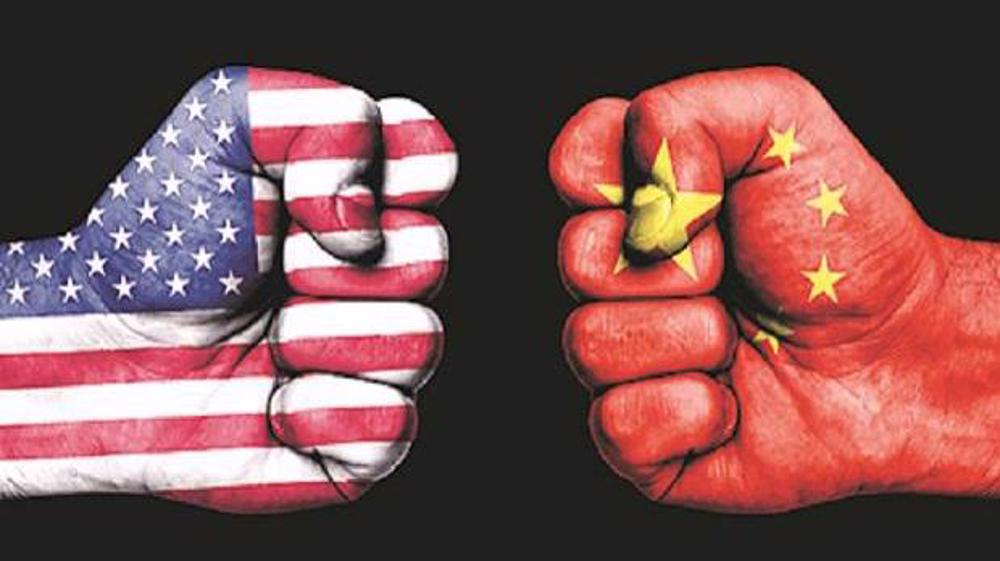US ends China exchange programs, calling them 'propaganda tools'
The US State Department has announced its termination of five cultural exchange programs with China, referring to them as “soft power propaganda tools.” said on Friday it has ended five cultural exchange programs with China, calling them
The Department declared on its official website on Friday that it had “terminated” the Policymakers Educational China Trip Program, the US-China Friendship Program, the US-China Leadership Exchange Program, the US-China Transpacific Exchange Program and the Hong Kong Educational and Cultural Program.
It further explained that the programs had been set up under the auspices of the Mutual Educational and Cultural Exchange Act (MECEA) - a 1961 law signed by President John F. Kennedy, purportedly aimed at advancing academic and cultural exchanges with foreign nations.
“While other programs funded under the auspices of the MECEA are mutually beneficial, the five programs in question are fully funded and operated by the (Chinese) government as soft power propaganda tools,” the statement then claimed.
Pompeo slaps China with visa restrictions
The development came as the hawkish US Secretary of State Mike Pompeo announced on Friday that he had imposed visa restrictions on Chinese officials and others accused of using violence or other coercive tactics to intimidate critics.
The top US diplomat did not, however, identify those sanctioned in a written statement in which he accused the Chinese Communist Party’s (CCP) United Front Work Department of coercing and bullying “those who would oppose Beijing’s policies.”
“The United Front frequently intimidates members of academia, businesses, civil society groups, and Chinese diaspora communities, including members of ethnic and religious minority communities who speak out against horrific human rights abuses taking place in Xinjiang, Tibet, and elsewhere in China,” he claimed, further alleging that its coercive tactics include the release of personal details of their targets, a practice known as “doxing.”
Pompeo also accused Beijing of seeking to “co-opt and coerce” people in the US and elsewhere to support its “authoritarian narratives and policy preferences” and called on Beijing “to end its use of coercion and intimidation tactics to suppress freedom of expression.”
The development came as China’s state media also warned on Friday that some damages inflected upon the Sino-US ties amid the persisting anti-China measures by the outgoing Trump administration are “beyond repair.”
“Even if the incoming administration has any intention of easing the tensions that have been sown, and continue being sown, some damage is simply beyond repair, as the sitting US president intends,” China Daily newspaper observed in a Friday editorial.
This is while the Trump administration also added major Chinese chipmaker SMIC and offshore oil giant CNOOC to a blacklist of alleged military companies, barring American investors from buying securities issued by the two corporations starting late next year.
The moves came as the top US spy chief accused China on Thursday of preparing for "an open-ended period of confrontation with the US," marking yet another bid by the Trump administration to further escalate tensions with Beijing in its final days in office.
"Beijing is preparing for an open-ended period of confrontation with the U.S. Washington should also be prepared. Leaders must work across partisan divides to understand the threat, speak about it openly, and take action to address it," said Director of National Intelligence John Ratcliffe in an article published by the right-wing financial daily The Wall Street Journal.
Meanwhile, China’s ambassador to the US, Cui Tiankai, suggested Beijing’s desire to reset the increasingly confrontational relationship with Washington as US President-elect Joe Biden prepares to take office in January.
“There are always differences between the two countries. None of them justifies confrontation and war, cold or hot,” Cui said on Twitter post.
“With sufficient mutual respect and mutual understanding, we are capable of managing these differences so that they would not derail the entire relationship,” he added on Thursday.
Moreover, a Reuters report on Friday cited “a person familiar with the matter” as saying that US prosecutors are discussing a deal with lawyers for Chinese Huawei Corporation’s Chief Financial Officer Meng Wanzhou to resolve criminal charges against her and end her detention in Canada, which would then terminate a major source of discord.
It remains unclear, however, whether a Biden administration would bring a dramatic shift to Sino-US ties any time soon.
'Next to impossible' to rescue patients from Gaza's Kamal Adwan Hospital: Director
VIDEO | Vietnam current prosperity
Report blames gasoil exports for shortage at Iranian power plants
VIDEO | Hind Rajab Foundation names Israeli war criminals vacationing after Gaza genocide
VIDEO | Australians rally for Gaza ahead of Christmas festivities
VIDEO | Attacks on Sana'a
Iran reports further drop in annual inflation rate in December
Israel indicts two settlers over suspected spying for Hezbollah













 This makes it easy to access the Press TV website
This makes it easy to access the Press TV website